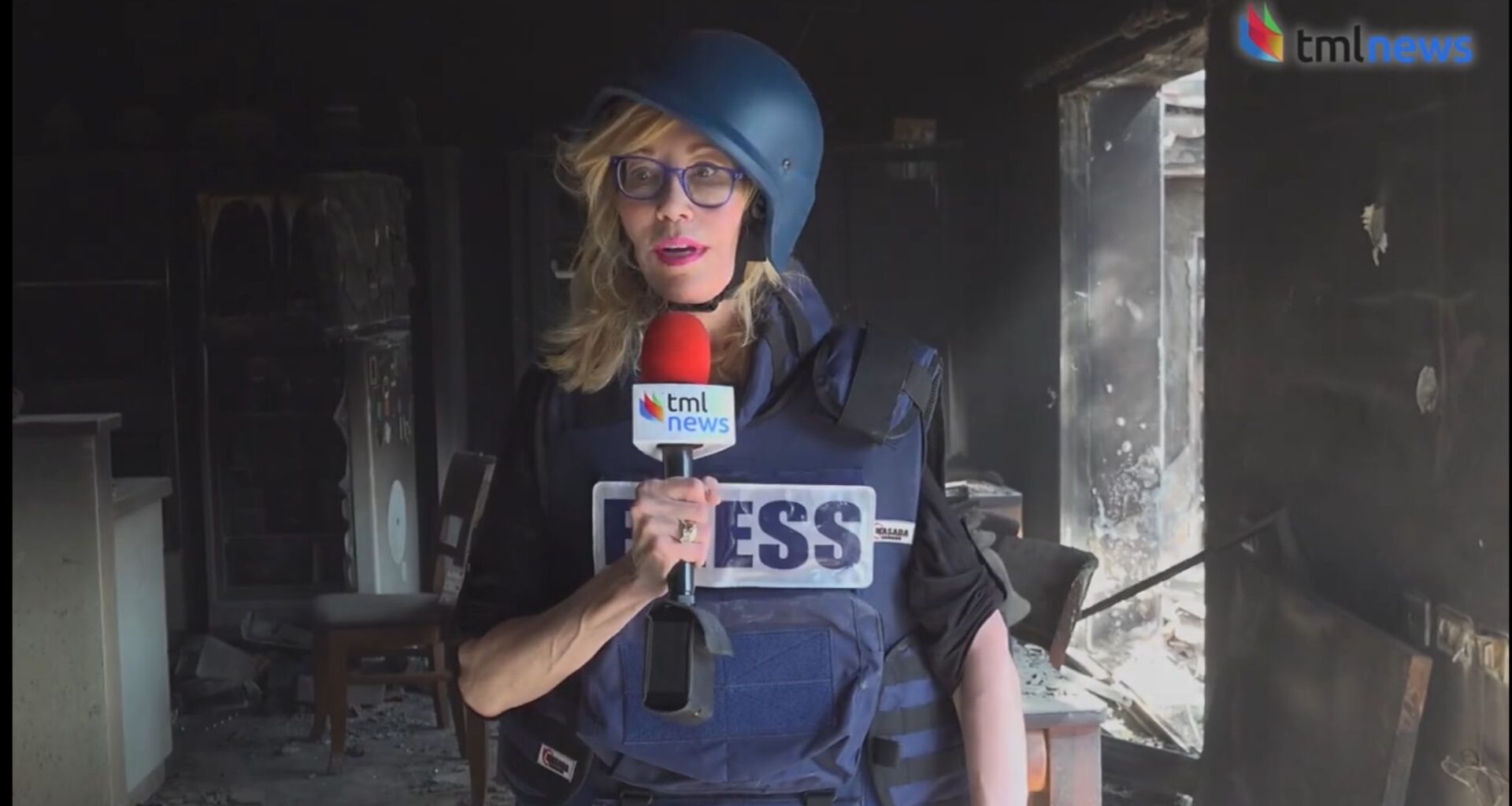The memory of walking on the ashes of Kibbutz Be’eri feels so distinct. As a journalist, I had to witness the desecration Hamas bestowed on the world when ZAKA, Israel’s search and rescue organization, was still collecting the scraps of flesh from victims. Yet the burning sensation in my heart in the early days after the bloodiest massacre in Israel’s history is waning. Not because I don’t feel for every family who lost their loved ones and their homes. Not because I can’t feel pain. Not because I can’t put myself in their shoes.
Because I, like many others, have become numb.
Time fades historic and tragic events as newer, uglier and sexier headlines replace the ones before. A century from now, how will October 7 be remembered?
Two years later, the memorials are ever-present despite the vicious antisemitism, the security threats and the boycotts the anti-Israel movement has worked so feverishly to impose.
The world watched in disbelief at the many atrocities on that Black Sabbath. Israel did what a nation defending its citizens should do: enter a war against Hamas to save its hostages and destroy the terrorist group and its infrastructure. In realpolitik, a lengthy war is often not in Israel’s — or, for that matter, any nation’s — favor. Even if you are on the right side of history, citizens of our universe don’t have the stomach for endless war.
Hours of devastating testimonials have been broadcast, retelling the enormous number of stories from when Hamas infiltrated Israel’s border. And yet, a naive and ill-informed public exists — people who believe that Oct. 7 never happened.
Many of these people also doubt the Shoah. According to an Economist poll, 1 in 5 Young Americans believes the Holocaust is a myth.
Those who denounce Israel in protests live in countries that did not broadcast the same images and information Israeli TV shared with its viewers. Many of them are among the youth or Gen Z population, who hear the word “genocide” and believe Israel has, with malice and foresight, intentionally murdered tens of thousands of Palestinians with the goal of wiping out their population.
Repeat the canard enough, and history proves you’ll believe it.
Israel’s goals have been to stop Iran and its proxies from holding the world hostage. Who would have imagined that on that terrible day, 256 hostages would be dragged into Gaza’s deep, dark tunnels? From freeing Lebanon from Hezbollah, the Gazan people from Hamas and the region from the threat of Iranian nuclear arms, Israel has changed the course of history.
Oct. 7 will pit the rhetoric camps on many sides of the story against each other. The pro-Palestinian propaganda machine is well-oiled and consistent in its message. Israel, all too often, is a Johnny-come-lately in tackling the groundswell of distortion.
Enter AI — and who feeds the intelligence into the mother lode of data will be a determining factor in relaying historical facts.
Billions of dollars should be spent in the coming years to teach the younger generation the true stories — and, in this case, how the massacre of 1,200 Israelis began. These are the accounts the public should learn to vet — ones that withstand scrutiny.
Antisemitism is being used to instill fear and to scare the pro-Israel camp into hiding. In June, a report by the Anti-Defamation League and Jewish Federations stated that over one-third of American Jews reported witnessing an actual or threatened act of antisemitic violence in the last 12 months. The aftermath of Oct. 7 has left Jews and those supporting the Jewish state traumatized. The Iran-linked Lashkar-e-Tharallah shot a prominent Pakistani journalist, Imtiaz Mir, because he visited Israel recently. Last week, he succumbed to his wounds.
Fortunately, not everyone is intimidated — and Imtiaz Mir lost his life over it. Chancellor Friedrich Merz — the chancellor of Germany, the same Germany synonymous with Hitler’s henchmen who murdered millions of Jews — boldly stated he supports boycotting Eurovision if Israel is excluded.
American media icon, Shari Redstone, put her family foundation’s backing behind a three-day event at the Kennedy Center for the Performing Arts, in conjunction with the Hostages and Missing Families Forum, to keep the memory of Oct. 7 alive — as well as the 48 hostages still held in Gaza.
Additionally, 1,200 Hollywood celebrities who belong to the Creative Community for Peace and The Brigade have pushed back, penning a letter that rejects the boycott of the Israeli film industry.
To refute October 7th deniers, historian Andrew Roberts, a member of the House of Lords of the United Kingdom and Chair of the Parliamentary Commission Report, gathered irrefutable proof of the event. This chronicle counters misinformation and preserves the truth.
One hundred years from now, the story of Oct. 7 might be told as it happened.
Israel did not begin the war. Hamas did — with a vengeance.
However, the day after Oct. 7, the gates of antisemitism opened, flooding the streets with demonstrations that have not ceased. One hundred years from now, I fear antisemitism will not wane. To what extent is up to the courageous, willing to step up against the lies and scare tactics.
Unfortunately, they are too few.
Iran’s evil axis continues to haunt the world. Israeli hostages are still held in tunnels. Drones laden with missiles still fly into Israel.
We can’t allow another butchery, like the one in Be’eri, to happen. I still think of the ashes of all the innocent mothers, fathers and children who perished. The remnants of their ashes are still on my black shoes.

